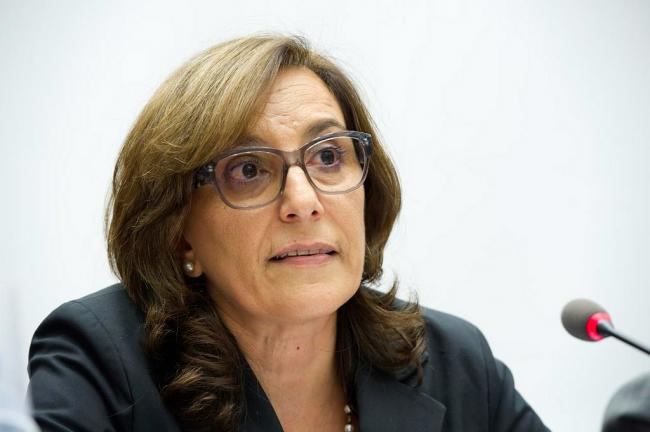Geopolitics
Governance/Geopolitics Maldives: UN rights office says trial of former President politicized, unfair
02 May 2015, 03:26 pm Print

New York, May 2 (JEN): The trial and conviction of former Maldives President Mohammed Nasheed was vastly unfair, arbitrary and disproportionate, a senior United Nations human rights official announced on Friday as she reported on her recent visit to the Asian country.
Addressing a press briefing at UN Headquarters in Geneva, Mona Rishmawi, Chief of the Rule of Law, Equality and Non-Discrimination Branch at the Office of the High Commissioner for Human Rights (OHCHR), confirmed that she had headed a UN delegation to the Maldives from 20 to 23 April to examine the broader issues related to the criminal case against Nasheed.
According to OHCHR, Nasheed’s trial began one day after his arrest, which was made on the charge that he authorised the unlawful detention of Criminal Court Judge Abdulla Mohamed in 2012 when he was the country’s President.
Having previously faced charges for the same complaint, which were withdrawn by the Prosecutor-General, Nasheed was arrested again under the Anti-Terrorism Act.
OHCHR has noted that the trial did not follow stipulations in the Maldives’ Constitution, which states that anyone accused of a crime shall have the right to adequate time and facilities for the preparation of his defence, and did not follow international fair trial standards.
In the absence of an adequate criminal code, evidence law, and criminal procedures, the Maldives Prosecutor-General and the judges had excessive discretionary powers that they applied against the former President, Rishmawi told reporters, adding that Nasheed had only learnt about the charges against him under the Anti-Terrorism Act upon arrest.
In addition, she said, the entire Maldives judicial system was perceived as politicised, inadequate and subject to external influence.
OHCHR once again stressed the need for the authorities to allow an environment conducive to political dialogue in the country, Rishmawi continued.
OHCHR has noted that the trial did not follow stipulations in the Maldives’ Constitution, which states that anyone accused of a crime shall have the right to adequate time and facilities for the preparation of his defence, and did not follow international fair trial standards.
In the absence of an adequate criminal code, evidence law, and criminal procedures, the Maldives Prosecutor-General and the judges had excessive discretionary powers that they applied against the former President, Rishmawi told reporters, adding that Nasheed had only learnt about the charges against him under the Anti-Terrorism Act upon arrest.
In addition, she said, the entire Maldives judicial system was perceived as politicised, inadequate and subject to external influence.
OHCHR once again stressed the need for the authorities to allow an environment conducive to political dialogue in the country, Rishmawi continued.
A mass protest had been planned in the country and the OHCHR urged the authorities to allow such exercise of freedom of expression and opinion without undue interference.
Photo: UN Geneva/Violaine Martin
Photo: UN Geneva/Violaine Martin
More Geopolitics
- US official reacts to Elon Musk's remarks backing India's permanent UNSC seat
- Sri Lanka: 6.2 magnitude earthquake hits Island Nation, no casualty
- UN chief hails SE Asia for vital role ‘building bridges of understanding’
- India-Uzbekistan Synergy at the SCO
- Kazakhstan to host Astana International Forum in June to address key global challenges






